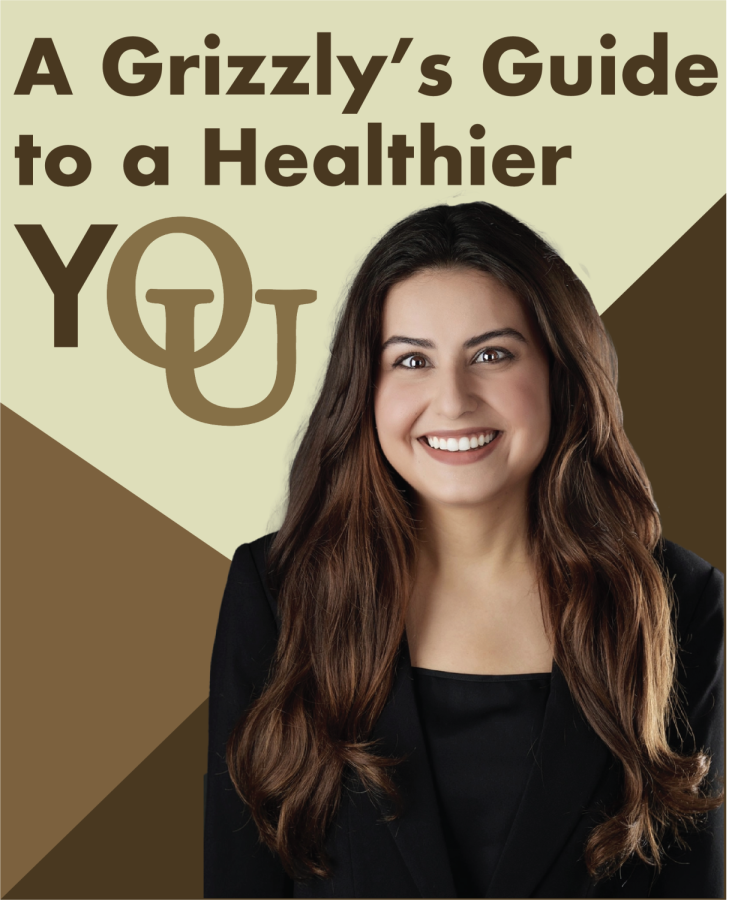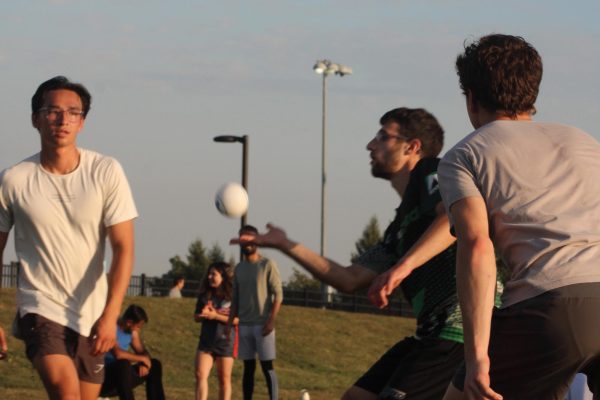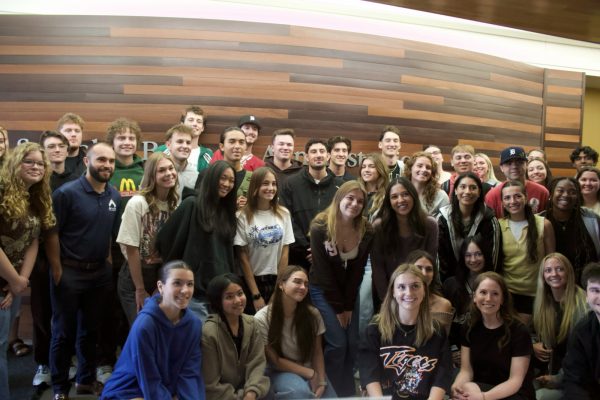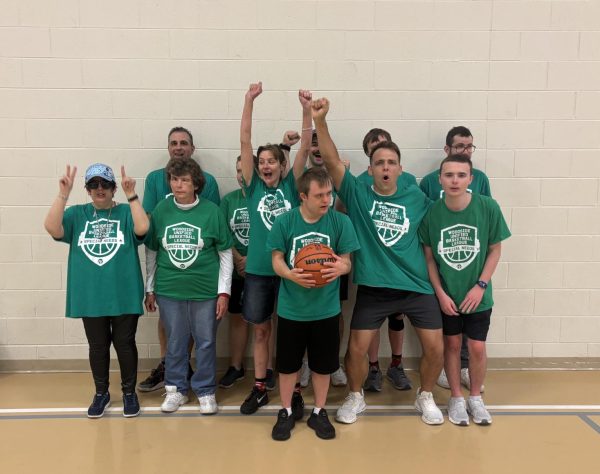A Grizzly’s Guide to a Healthier Y(OU): Healthy habits to pick up in college
Photo courtesy of Gabrielle Abdelmessih
Campus Editor and Columnist, Gabrielle Abdelmessih.
You are what you eat. Well, maybe not literally, but what you eat can have short and long-term health consequences.
Eating healthy can reduce one’s risk of heart disease, stroke, diabetes, some cancers and other health conditions. While more research about this link needs to be conducted, current studies suggest that foods high in components like sugar, salt, saturated fats and trans fats can have negative impacts. It is important to point out that this is not specific to any one person’s individual risks, genetic factors and physical activity levels, and that you should always consult with a healthcare professional about your particular dietary needs.
Exercise is associated with a decreased risk of chronic diseases, too.
Yes, it seems like a no-brainer that eating healthy foods and exercising is better for you, but what isn’t always acknowledged is the amount of time, money and access that is required to do so.
For this week’s column, I spoke to Dr. George Howard, chief of the Department of Hematology and Oncology — Beaumont Troy, about what tangible and practical steps college students can take to improve their overall health, as well as share some free resources available to OU students that can help in reaching that goal.
Whether it be developing healthy eating habits, an exercise routine, or limiting alcohol and tobacco consumption, Dr. Howard emphasized the importance of establishing a routine as a young adult.
So, how do we fit this into our college schedule and budget? Let’s discuss:
Healthy Eating Habits
“The path to health when you’re older starts when you’re making decisions long term about your dietary choices, ” Dr. Howard stressed. According to Dr. Howard, incorporating whole-food plant-based foods into your diet and reducing consumption of food low in nutrients (minerals, vitamins, and fibers) is a good place to start. “Keeping as whole food a diet as possible is going to lead to all sorts of long-term health outcomes,” he said. Meal prepping and having healthier snacks like fruit and unsalted nuts readily available to grab and go can help save some time and kudos to Gen-Z, we tend to already prefer plant-forward meals while also taking pricing and sustainability into account.
Limiting Alcohol and Tobacco Consumption
Alcohol and its potential sugary mixers are also risk factors for chronic health conditions. It doesn’t mean that it can’t be enjoyed responsibly and safely in moderation, but higher consumption levels increase the risks. Limiting other sugary beverages like soda and coffee drinks should be considered as well. Note to self: less Starbucks, more water!
Tobacco causes short and long-term damage, including cardiovascular damage, cancer and potentially a nicotine addiction that can prolong usage. Oakland University is a smoke-free campus.
Exercise
“You only benefit yourself, from the perspective of energy, brain functioning, good sleep and cardiovascular health through excessing,” Dr. Howard emphasized. For adults over the age of 18, 150 minutes of cardio activity (a brisk walk, jogging, swimming, etc.) is recommended a week along with two days a week of activities that strengthen muscles (lifting weights, climbing stairs, yoga, etc.). This doesn’t have to take place all at once. Try adding two or three short workout sessions a day. It adds up! That 10-minute walk to and from your car thanks to the joy that happens to be OU parking lots? Consider it part of your exercise routine.
These suggestions might seem like just the basics of good health practices, but developing healthy habits earlier in life is fundamental to long-term health and wellness.
If you have any questions or suggestions for future columns, email me: [email protected]. My goal is to make “A Grizzly’s Guide to a Healthier Y(OU)” as helpful as it can be for the university community.
On-Campus Resources:






